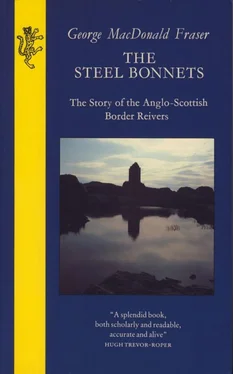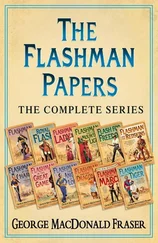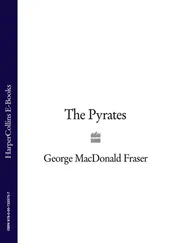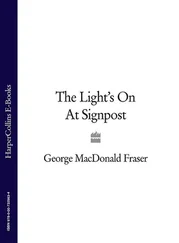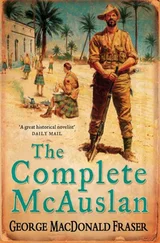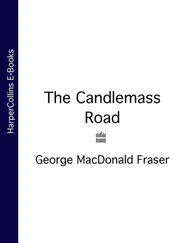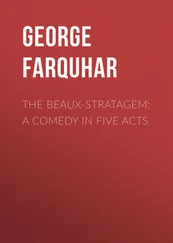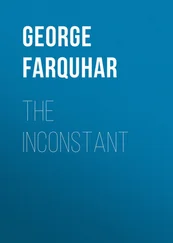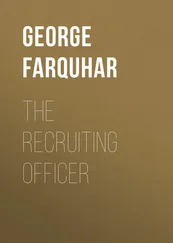George Fraser - The Steel Bonnets
Здесь есть возможность читать онлайн «George Fraser - The Steel Bonnets» — ознакомительный отрывок электронной книги совершенно бесплатно, а после прочтения отрывка купить полную версию. В некоторых случаях можно слушать аудио, скачать через торрент в формате fb2 и присутствует краткое содержание. Жанр: unrecognised, на английском языке. Описание произведения, (предисловие) а так же отзывы посетителей доступны на портале библиотеки ЛибКат.
- Название:The Steel Bonnets
- Автор:
- Жанр:
- Год:неизвестен
- ISBN:нет данных
- Рейтинг книги:4 / 5. Голосов: 1
-
Избранное:Добавить в избранное
- Отзывы:
-
Ваша оценка:
- 80
- 1
- 2
- 3
- 4
- 5
The Steel Bonnets: краткое содержание, описание и аннотация
Предлагаем к чтению аннотацию, описание, краткое содержание или предисловие (зависит от того, что написал сам автор книги «The Steel Bonnets»). Если вы не нашли необходимую информацию о книге — напишите в комментариях, мы постараемся отыскать её.
The Steel Bonnets — читать онлайн ознакомительный отрывок
Ниже представлен текст книги, разбитый по страницам. Система сохранения места последней прочитанной страницы, позволяет с удобством читать онлайн бесплатно книгу «The Steel Bonnets», без необходимости каждый раз заново искать на чём Вы остановились. Поставьте закладку, и сможете в любой момент перейти на страницу, на которой закончили чтение.
Интервал:
Закладка:
But such entertainments, if they had ever reached the Borderland, would have seemed tame to people whose pastime it was to fashion their drama from their own lives. “They take great pleasure in their own music”, wrote Leslie, “and in their rhythmical songs, which they compose upon the exploits of their own ancestors.” When James IV came to the Borders, with a large following of minstrels and musicians, he also spent sums on local performers, who included a girl from Carlisle specially engaged to sing for him. Her fee was 28s. But although they might hold their own in music, it was in poetry that the Borderers excelled.
The Border ballads are world famous. They are earth poetry. That they have survived in such quantity is due largely to the industry and enthusiasm of Sir Walter Scott, who saved them from oblivion. He and others added ballads of their own, but both the original folk-poems and the imitations are in a literary class by themselves. It seems strange that such a crude, warlike folk should produce such a vital and lasting literature. Scott believed that the wilder the society the more violent the impulse received from poetry and music; the impulse in the Border was both violent and permanent.
They made their poems about their robber heroes, and as a result their characteristics are turbulence and melancholy. How much Scott amended and edited the oral traditions we shall never know exactly; he was never one to spoil a good thing for the want of a little adjustment. But the raw material was magnificent; listen to the opening lines of “Jock o’ the Side”, with its stark urgency and echo of hoofs on the tops:
Now Liddesdale has ridden a raid
But I wat they had better hae stayed at hame,
For Michael of Winfield he is dead
And Jock o’ the Side is prisoner ta’en.
And compare the quiet, ominous words of the English reiver, Hobbie Noble, 3 planning his last foray:
“But will ye stay till the day go down
Until the night come o’er the ground,
And I’ll be a guide worth any twa
That may in Liddesdale be found.”
But word is gane to the land sergeant,
In Askerton where that he lay—
“The deer that ye hae hunted sae lang
Is seen into the Waste this day.”
Or the saddest of all Border songs, “The Lament of the Border Widow”, supposedly written of a reiver hanged at his own door in 1529:
But think na ye my heart was sair
When I laid the mould on his yellow hair?
O think na ye my heart was wae
When I turned about, away to gae?
No living man I’ll love again,
Since that my lovely knight is slain,
With ae lock of his yellow hair
I’ll chain my heart for evermair.
These are fragments; to read through Scott’s “Minstrelsy” is to go into a new world whose echoes have sounded through the poetry and folk music of the English-speaking peoples. 4 For those who can take the ballads—and not everyone can—they provide a haunting impression of the Border spirit, captive and restless in a hostile world, sometimes breaking free in exhilarating imagination, but always returning to the resigned sadness of the North.
This, then, was the background and culture of the Anglo-Scottish frontier society of the sixteenth century. We have seen how it arose, what influences shaped it, and how it had come to prey on itself for existence. The essence of the story is how the preying was done, who did it, and how authority tried to stop it.
1.Peregrine Bertie, 11th Lord Willoughby d’Eresby (1535–1601), Warden of the English East March and Governor of Berwick from 1598 till his death, is commemorated in the old ballad as
“… the brave Lord Willoughby, who is both fierce and fell,
He will not give one inch of ground for all the devils in hell.”
A renowned military leader and splendid swordsman, Willoughby was slightly less of an aristocrat than his name and tide suggest. He was the legitimate son of Baroness Willoughby and her gentleman-usher (whose father had been master-mason of Winchester Cathedral) and “could not brook the obsequiousness and assiduity of the court” hi his own words, Willoughby was “none of the reptilia”.
2.He was not elected, but attracted some enthusiastic supporters, who greeted his platform appearances with cries of “Git the spurs oot and let’s git crackin’”.
3.Hobbie (Halbert) Noble figures in two of the best-known Border ballads. In one he is a rescuer of Jock of the Side from Newcastle prison; the second ballad describes Hobbie’s own betrayal by one Simon Armstrong of the Mains to the English authorities. According to both ballads he was a Bewcastle man, outlawed for his crimes, and living with the Liddesdale Armstrongs. In fact there was a “Hobbe Noble” living in Bewcastle with others of his own surname and with the English Nixons in 1583 (Musgrave’s list); he may be the famous reiver of the ballads, since he was contemporary with Jock Armstrong of the Side, and with several Simon Armstrongs. But there is no record of his being outlawed, or going to Scotland, although it is interesting to note that the Nobles, English in 1583, were being referred to by 1596 as “leige subjects of Scotland”.
4.Among the modern poets who were touched by the spirit of the Border ballads, Kipling is foremost. And possibly a poetic gift may be inherited across the centuries—it is at least interesting that one of the greatest poets of the twentieth century was an Eliot.
XI
Lance and steel bonnet
The Border robber was a specialist, and needed special equipment, the most important part of which was his horse. “They reckon it a great disgrace for anyone to make a journey on foot,” wrote Leslie, and Froissart had noted two centuries earlier how the Scots at war “are all a-horseback … the common people on little hackneys and geldings.” The Border horses, called hobblers or hobbys, were small and active, and trained to cross the most difficult and boggy country, “and to get over where our footmen could scarce dare to follow.”
Such precious animals naturally attracted legislation, particularly in England, where horses were in short supply. In the late 1500s their export to Scotland was strictly banned; Hunsdon “condemde sundry” for this treason in 1587, and complained that English gentlemen were involved in the illicit trade. It was a well-broken law in both directions, for Scotland had banned horse export twenty years earlier, with no great success.
The Scots had long been noted horse-breeders, so much so that legislation was occasionally passed to restrain production. By statute of 1214 every Scot of property must own at least one horse, and in 1327 the country could put 20,000 cavalry into the field. Export to England at that time was highly profitable, and was carried on even by men of rank. The Stuart kings imported from Hungary, Poland, and Spain to improve the breed, and there emerged the small, swift unusually hardy mounts which in James IV’s time were reputed to be able to cover as much as 150 miles in a day. They must have been short miles.
However, even allowing for exaggeration, such horses were ideal all-purpose mounts both for peace-time raiders and war-time light cavalry. They enabled the Border riders to muster and move men at high speed over remarkable distances. A leader like young Buccleuch could raise 2000 horse at short notice, able to strike faster and at far greater range than would have seemed credible to an ordinary cavalry commander; between sixty and eighty miles a day seems to have been within their capability. 1 In addition, the horses were cheap to buy and easy to maintain: there is evidence that they did not even need shoeing.
The Border rider, as he sat his hobbler, was a most workmanlike figure, far more streamlined than the ordinary cavalryman of his time. His appearance was “base and beggarly” by military standards, and this applied to the lords as well as to the lowly. “All clad a lyke in jackes cooverd with whyte leather, dooblettes of the same or of fustian, and most commonly all white hosen,” Patten noted after Pinkie (1547). “Not one with either cheine, brooch, ryng or garment of silke that I coold see.… This vilnes of port was the caus that so many of their great men and gentlemen wear kyld and so fewe saved. The outwarde sheaw … whearby a stranger might discern a villain from a gentleman, was not amoong them to be seen.”
Читать дальшеИнтервал:
Закладка:
Похожие книги на «The Steel Bonnets»
Представляем Вашему вниманию похожие книги на «The Steel Bonnets» списком для выбора. Мы отобрали схожую по названию и смыслу литературу в надежде предоставить читателям больше вариантов отыскать новые, интересные, ещё непрочитанные произведения.
Обсуждение, отзывы о книге «The Steel Bonnets» и просто собственные мнения читателей. Оставьте ваши комментарии, напишите, что Вы думаете о произведении, его смысле или главных героях. Укажите что конкретно понравилось, а что нет, и почему Вы так считаете.
